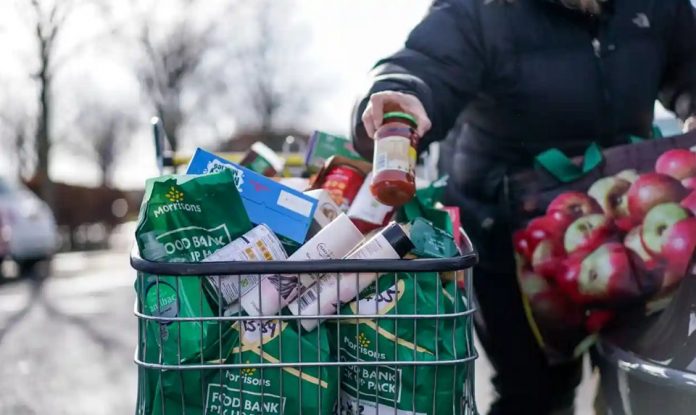Exclusive: Research finds that disease is associated with 39% rise in odds of people in UK having inadequate income for basic needs
People living in the UK’s most deprived areas are more likely to be infected with Covid-19, but new research suggests this relationship is a two-way street: becoming infected also increases people’s risk of economic hardship, particularly if they develop long Covid.
“We’ve shown that Covid has an impact on people’s ability to meet their basic household requirements – something that is only going to be exacerbated by the cost of living crisis which is happening at the same time,” said Adrian Martineau, a professor of respiratory infection and immunity at Queen Mary University of London (QMUL), who supervised the research.
The findings have boosted calls for ministers to do more to support the growing number of working-age adults affected by the condition, which is also known as post-acute Covid syndrome (Pacs).
“Many long-haulers have lost their jobs, and in some instances their partners have Pacs, so two salaries have been lost,” said Louise Barnes, founder of the PACS19 support group. “Whilst many have been able to get PIP [personal independence] payments, some haven’t, and are no longer being supported by their employers. They are facing a financial nightmare and need financial support.”
According to the Office for National Statistics, about 1.3 million people, or 2% of the UK population, are living with long Covid. Those between 35 and 69 years of age are at greatest risk, and experts have expressed concerns about the impact of so many working-age people suffering from long-term symptoms and disability.
To investigate the economic consequences of the illness, Martineau and colleagues analysed data from 16,910 Britons aged 16 years or over who completed monthly questionnaires about their health and household income between May 2020 and October 2021.
The study, which has not yet been peer reviewed, found that testing positive for Covid was associated with a 39% increase in the odds of people reporting inadequate income to meet their basic needs, and a fivefold increase in the number of people reporting long-term term sickness absence from work, compared with those who didn’t become infected.
The associations were strongest where catching Covid led to hospitalisation or the development of persistent symptoms, supporting the idea that Covid was the cause of people’s financial hardship.
Anne Williamson, a health economist at QMUL’s Blizard Institute who led the research, said: “The vicious cycle of poor health and poverty that we identify should lead policymakers to consider early, decisive interventions to break this downward spiral – including employment advice and other economic support, as well as healthcare follow-up.”Advertisement
In January, MPs on the all-party parliamentary group on coronavirus called on the government to recognise Covid-19 as an occupational disease – a move that could help to standardise support and care for those affected, and improve data collection on the problem across the country. The MPs also urged ministers to set up a compensation scheme for key workers who have suffered financially through loss of work.
Lib Dem MP Layla Moran , who is also chair of theall-party parliamentary group on coronavirus said: “As has been the case throughout this pandemic, the greatest burdens have fallen disproportionately on lower income and front line workers, and we’ve heard first hand how the debilitating symptoms of Long Covid can impact a person’s ability to work.
“The ONS estimates that Long Covid is impacting almost 1.3 million people in the UK and yet, the government have their heads firmly in the sand about the impact this will have on our economy and essential services.
“They must urgently increase resources for research into treatment and provide compensation to the frontline workers who have sacrificed their health and wealth protecting this country.”
